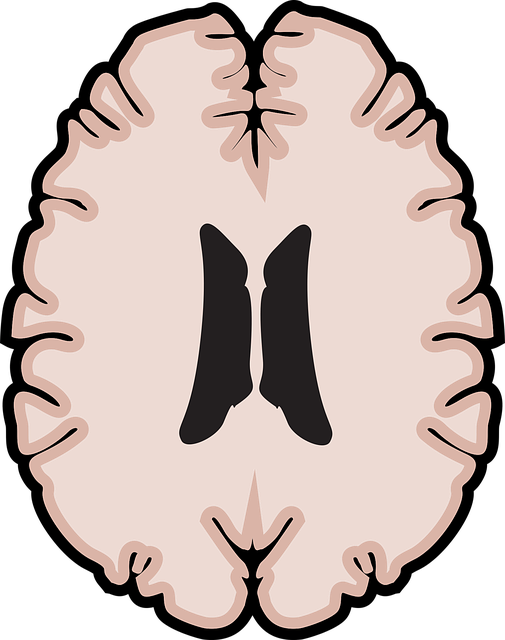In Colorado Springs, mental illness stigma severely impacts access to essential support during divorce, leading many residents to avoid seeking care due to associated shame and a lack of awareness. Colorado Springs Divorce Therapy centers address this issue by offering non-judgmental spaces that empower clients with Mind Over Matter principles, fostering resilience and coping mechanisms for emotional transitions. Through education, awareness campaigns, community outreach programs, and policy changes, these therapy practices normalize mental health discussions, promote early intervention, and prevent depression escalation. By integrating self-care and stress management techniques, they enhance long-term mental resilience, creating a supportive ecosystem that reduces stigma associated with professional help-seeking.
Mental illness stigma remains a pervasive challenge, especially in communities like Colorado Springs. This article explores comprehensive strategies to reduce stigma, focusing on unique aspects such as the impact on individuals seeking Colorado Springs divorce therapy, community outreach programs, and policy changes. By understanding the deeply rooted nature of this issue, we can create a more supportive environment for mental health treatment, including Colorado Springs divorce therapy, fostering open dialogue and reduced barriers to care.
- Understanding the Stigma Surrounding Mental Illness in Colorado Springs Communities
- The Impact of Stigma on Individuals Seeking Divorce Therapy
- Effective Strategies to Reduce Stigma in Therapeutic Settings
- Community Outreach Programs: Engaging and Educating the Public
- Policy Changes and Their Role in Fostering a Supportive Environment
Understanding the Stigma Surrounding Mental Illness in Colorado Springs Communities

In Colorado Springs communities, mental illness stigma remains a pervasive issue, often hindering individuals from seeking essential support and treatment. This stigma, deeply rooted in societal perceptions, can manifest as fear, discrimination, or misunderstanding towards those struggling with conditions like depression or anxiety disorders. Many residents face challenges in accessing appropriate care due to the associated shame and embarrassment, which can be exacerbated by a lack of awareness about mental health issues.
Colorado Springs divorce therapy has become an increasingly vital service, catering to individuals navigating both personal separations and mental health struggles. Professionals in this field employ Mind Over Matter principles to empower clients, fostering resilience and coping mechanisms for both emotional transitions and burnout prevention. By addressing the stigma directly and offering non-judgmental spaces, these therapies aim to normalize conversations around mental illness, encouraging early intervention and depression prevention strategies.
The Impact of Stigma on Individuals Seeking Divorce Therapy

The stigma surrounding mental illness can create significant barriers for individuals seeking support, particularly when it comes to sensitive topics like divorce. In Colorado Springs Divorce Therapy, many clients face the dual challenge of navigating emotional distress and the societal stereotypes associated with mental health struggles. This stigma often leads to feelings of isolation, shame, or even hesitation to openly discuss their experiences during therapy sessions. As a result, the process of healing and recovery can be hindered, especially for those who need specialized support to cope with the stress and emotions tied to divorce.
The impact is profound; individuals might avoid mentioning their mental health concerns, opting instead for silence or hiding behind labels that further marginalize them. This secrecy can impede progress in therapy, as addressing emotional well-being promotion techniques and stress management is a crucial aspect of effective divorce therapy. By fostering an environment free from stigma, Colorado Springs Divorce Therapy professionals can encourage clients to develop inner strength and resilience, ultimately enhancing their ability to cope with life transitions and personal challenges.
Effective Strategies to Reduce Stigma in Therapeutic Settings

In therapeutic settings, particularly within Colorado Springs Divorce Therapy practices, stigma reduction is a multifaceted endeavor. One effective strategy involves education and awareness campaigns that dispel myths surrounding mental illness. By normalizing conversations about mental health, therapists can create an environment where clients feel comfortable discussing their struggles openly. This shift in perception is crucial for encouraging individuals to seek help early on, potentially preventing the escalation of issues like depression.
Additionally, integrating self-care practices and stress management techniques into treatment plans empowers clients with tools to manage their well-being. Teaching clients about Depression Prevention strategies, such as mindfulness exercises and healthy coping mechanisms, not only supports their current therapy but also equips them with lifelong skills for maintaining mental resilience. These approaches collectively contribute to fostering a supportive ecosystem within therapeutic settings, ultimately reducing the stigma associated with seeking professional help.
Community Outreach Programs: Engaging and Educating the Public

In Colorado Springs, divorce therapy centers often extend their services beyond individual counseling to include community outreach programs. These initiatives aim to engage and educate the public about mental illness, with a specific focus on reducing stigma. By hosting workshops, seminars, and interactive sessions, these programs break down misconceptions and foster understanding. The goal is to create a supportive environment where individuals can learn about emotional regulation, inner strength development, and stress management techniques, ultimately encouraging early intervention and better mental health outcomes for all.
Through these outreach efforts, the community gains valuable insights into various mental health conditions, including their causes, symptoms, and effective treatment options. By demystifying mental illness, these programs empower individuals to seek help without fear of judgment. For instance, many divorce therapy centers in Colorado Springs have successfully used such initiatives to engage local schools, workplaces, and community centers, reaching a diverse audience with practical information on maintaining mental well-being.
Policy Changes and Their Role in Fostering a Supportive Environment

In fostering a supportive environment for those grappling with mental illness, policy changes play a pivotal role. Initiatives aimed at destigmatizing mental health issues and promoting understanding can significantly impact society’s approach to care. For instance, in Colorado Springs, the introduction of comprehensive divorce therapy programs specifically tailored to address emotional regulation and stress management has been transformative. These policies encourage open dialogue about mental wellness, ensuring individuals feel empowered to seek help without fear of judgment.
Furthermore, the development of Mental Wellness Coaching Programs and Stress Management Workshops Organization showcases a proactive approach. Such initiatives not only provide valuable tools for emotional well-being but also contribute to creating a supportive network. By integrating these programs into community resources, Colorado Springs is leading the way in reducing stigma, offering practical solutions, and promoting mental wellness, ultimately enhancing the overall quality of life for its residents.











